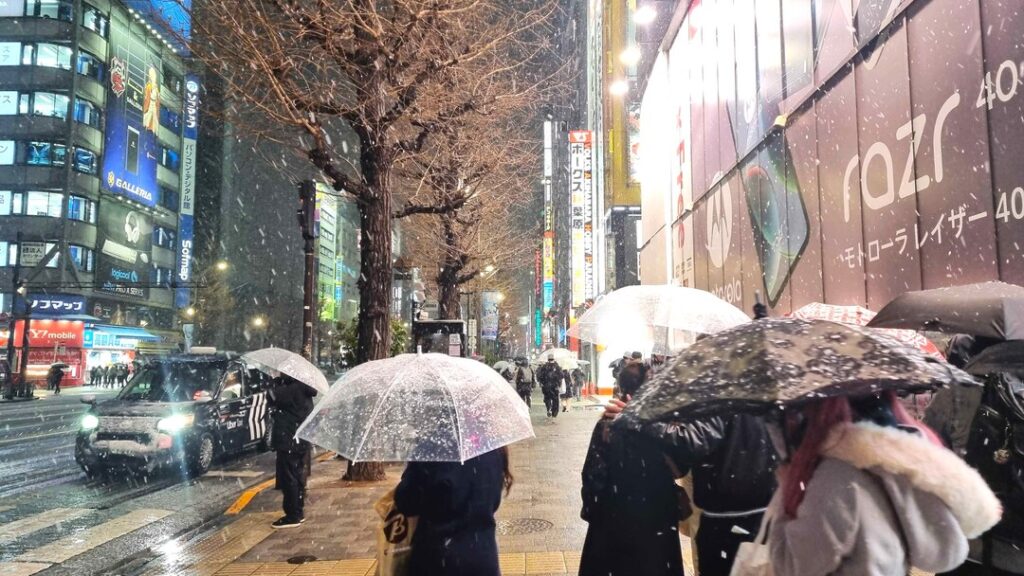
Hypercritics are worldwide. Our contributor, Gabriele Iuliano, video games and comics expert, is going to spend several months in Japan. He can speak Japanese and he is experiencing the authentic life of Tokyo. In his short reportages, Gabriele shows us a word: starting from its kanji, he tells how it’s relevant in Japanese culture. Now, it’s time to travel with Hypercritic. Read the first episode. The stage is yours, Gabriele.
Dear readers, being a Japanese Literature graduate, I moved to Tokyo to improve my language skills, soak up the culture, and go beyond the stereotypes known outside Japan.
Let’s start this Japan Tales issue with a concept binding Japanese society: 電気, electricity.
電気 (denki) means electricity and the character is found in many of the cultural icons of Japan.
電 (den) represents electricity and the character visualizes a lightning appearing under the rain (雨 ame). 気 (ki) means force, power. Combined together, 電気 means electricity, electric power.
Trains, their etiquette and habits
It wouldn’t be Japan without its famous trains. The train 電車 (densha), literally electric coach, is almost a tourist attraction in itself. The metro system in Tokyo is a sprawling network of tunnels, bridges, stations, and passages.
Trains fill a large part of the daily life of the citizens of the country’s capital. Long commutes and long working hours have contributed to the creation of a tight bond between humans and machines. People exhausted from a day’s work often sleep on the heated seats, sometimes snoring loudly. To avoid disturbing them, people tend to whisper in the train and it has become mandatory to put mobile phones on silent mode. Speaking on the phone is highly frowned upon and even talking in a somewhat loud tone can be called out.
Electricity and fun: from mobile to retro games
In addition, the trains act as a transitional, middle-of-the-road space where people watch series or movies, read books and play video games. In fact, it is so prevalent that the Japanese videogame market has shifted to handheld devices being the best-selling consoles, as well as mobile games.
The Japanese game and tech industry quickly adapted and the best place to find games and consoles in Tokyo remains 秋葉原 (Akihabara), the holy town for nerds and geeks. Originally an access point to the city (then named Edo), after World War II Akihabara became known for its electronics goods markets. For this reason, it quickly gained the nickname of 秋葉原電気街 (Akihabara Denki Gai) Akihabara Electric Town. Thousands of visitors crowd the streets of Akiba and its shops are always full. Akihabara actually spans several districts, with the main road, Chuo Dori, being the most recognizable feature.


Analogic nostalgia, digital experiences
Electronics and craftsmanship shops stay shoulder to shoulder-with otaku culture ventures. Large buildings house arcade joints, figure shops, and manga bookstores over several floors. The streets are always busy with tourists and locals looking for their favorite anime character statue or the latest console deal. Promoters for maid cafés dot the main road. With that said, the side roads can be even more interesting than the spectacle on the main street. In fact, vintage computer shops, DIY electronics, and second-hand anime merch shops are at every corner around Akihabara Station.
Multiple Doujinshi shops have their main sites here. These self-published comics have an enormous market. From original works to parodies and even adult works, doujinshi are a big part of otaku culture, so much that entire conventions are dedicated to them.
Moreover, phones as well are linked to 電気, electricity.
Daily Japanese people use 携帯電話 (keitai denwa), phones for a variety of purposes. Just like in the US or Europe everything is becoming centred around smartphones. Discarding physical books to save space, commuters read manga on their phones. Moreover, messaging apps even offer digital stores to purchase copies of comics and books. Payment systems, reading apps and chats become interlinked into a digitalized identity as phones become a pass for daily life.









